Brotato
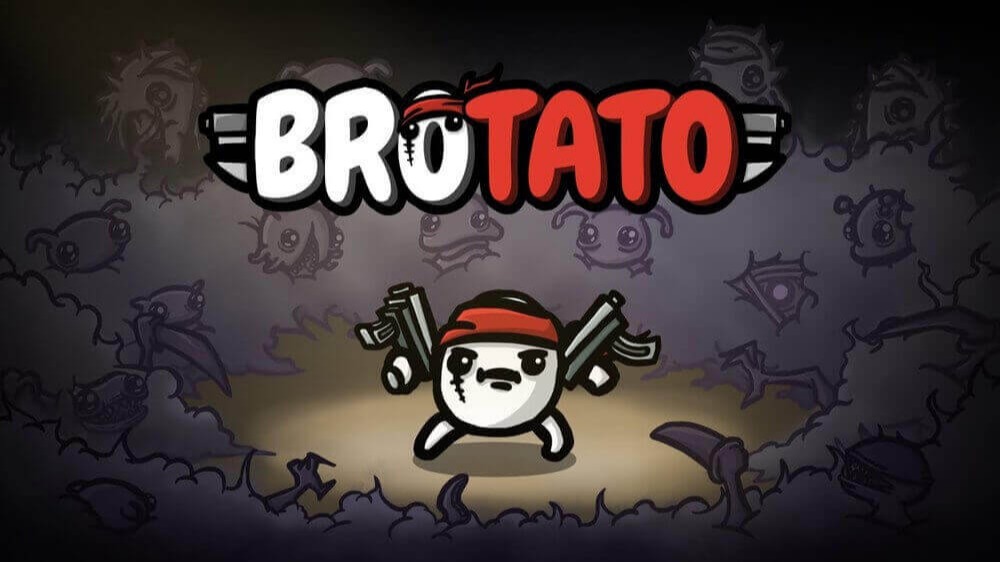
Brotato - For those who were not inspired by Vampire Survivors
There are two types of arena shooters: one where players compete in arenas with random objects scattered around - games like Quake. The time of such shooters has passed, but not yet. And the second type of arena shooters - this seemingly simple top-down shooter, where the main character is sprinting around the arena, firing from the crowds of invading enemies.
The second type of arena shooters at one time was a popular pastime in the days of push-button phones, for a while disappeared from the radar, but returned to its former popularity with Vampire Survivors. Once glimpsed on the Influencer streams, "pixel vampires" tore the charts and made its creator very rich.
Brotato is another arena shooter, essentially a clone of Vampire Survivors, but this clone works quite differently...
Less Rogue-lite, more shooter...
Vampire Survivors is certainly more addictive than a quagmire, but its success is largely coincidental. Vampire Survivors, for all its merits, did not reach its genre's full potential. Vampire Survivors has too slow a pace and terrible graphics. These terrible graphics are not because of the pixelation, but because of the unstyled and tacky style.
The essence of Brotato and Vampire Survivors is almost identical: the hero fights off hordes of enemies coming from all sides. Over time there are more and more enemies, they become stronger; but the protagonist himself is also getting better. The appeal of the rogue-lite arena genre is in the balance between risk and profit: kill more enemies, risking death in an uneven fight, or save health points, but not gain critical mass in time and ... die in an uneven fight. Arena rogue-lite is attractive because it requires the player to have a bit of mathematical mind and a straight hand.
The leveling element is the only visible change between arena shooters of the past and the present. In ancient arena shooters for every level passed / every minute lived the player received points that he could spend only on primitive improvements: +1 to damage, +5 to health, replace the gun with a shotgun, etc. In modern arena shooters the character has dozens of characteristics, types of weapons and heroes: in Vampire Survivors some characters are obviously strong in one, but weak in another. In Vampire Survivors, items fell randomly for each level. The player only had to choose the most appropriate one from the three choices offered. So over time you learn the game, find the best combinations by trial and error, survive longer, and swing faster. But there were some flaws in Vampire Survivors - it is unclear why they attached meta-progression with monstrous grind. Lingering gameplay was a sin in old roguelikes. In the past, developers didn't know how to keep a balance in their roguelike games. It was skewed in favor of the game. To spend twenty hours in the races for the sake of an improvement of +5% to health was considered quite normal, the same "soreness" suffers and Vampire Survivors.
Brotato is much more loyal and flexible with new players, offering much more variety from the start. If in Vampire Survivors you had to start the race with the same weapon from time to time, in Brotato you can start with any of the 18 types of weapons, if the chosen character knows how to handle it. Brotato all the fun starts after minutes, not hours, as it was in Vampire Survivors.
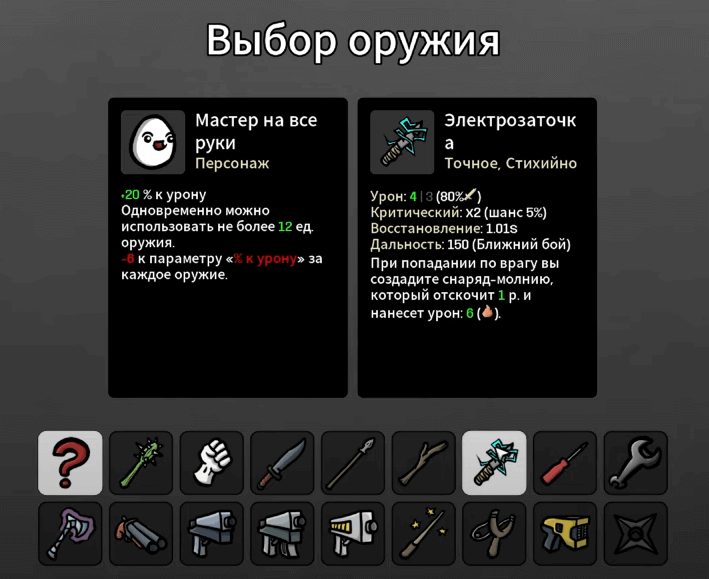
...The choice of starting weapons seems to be a small thing, but not in arena shooters with roguelike elements. The unusual combination of character and starting weapons opens up horizons for builds and reduces the role of randomness. Brotato has thirty-eight playable characters, each with their own unique style of play. For example: the pumping of Pacifist potatoes depends not on kills, but on the number of remaining enemies in the arena at the end of the round; that is, the gameplay for Pacifist is reduced to running. The Bull potato, on the other hand, is the clearest antipode to the Pacifist; the Bull can neither shoot, nor conjure, nor set up turrets, but he has a lot of health points and does damage to whoever hits him. While all characters are unlocked, Brotato spoils you with a variety of play styles.
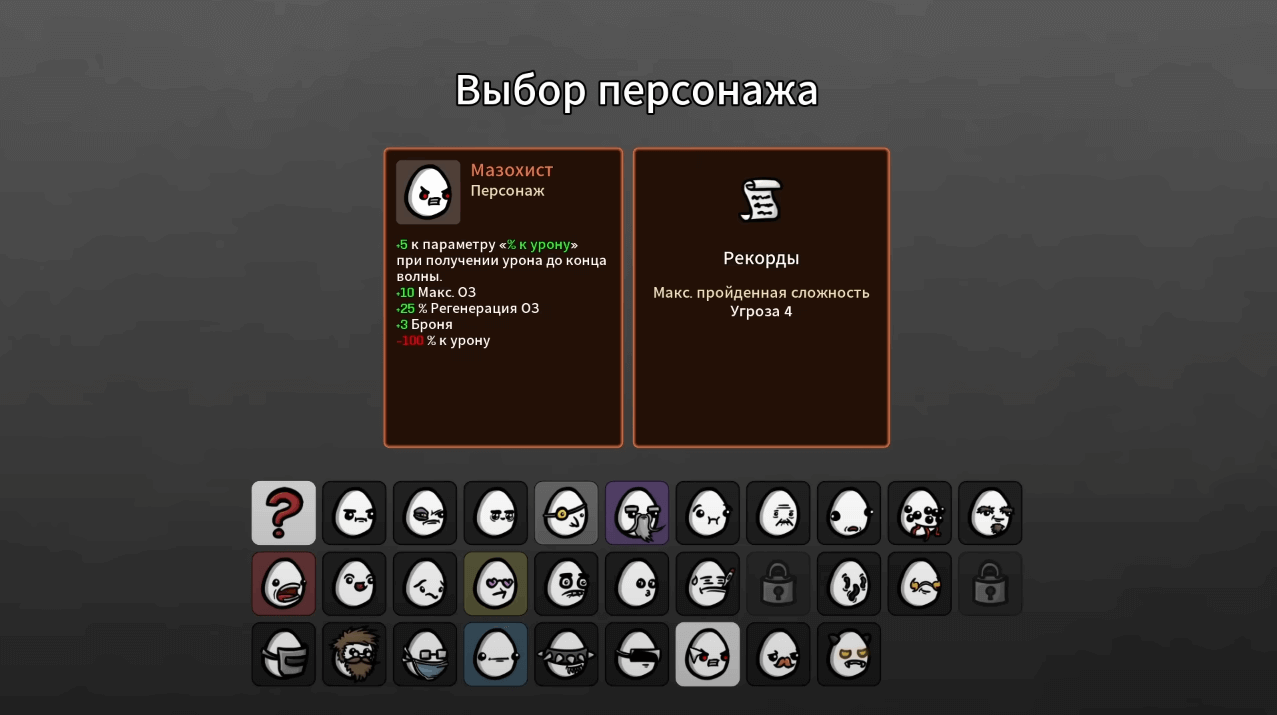
...Brotato has more variety than its mastermind. You can walk through the tops of all the content in the game in a matter of hours. This game is sharpened on the dynamics with a killer soundtrack, than on earning currency for pumping. To simplify: Brotato is more of a shooter with RPG elements.
You have to learn fast
Brotato is a great test of your knowledge of RPG mechanics. Upgrading your battle potato depends a lot on randomness, so even before the race you need to make a final build in your head. At the end of each level you get an item, but there are not so many useful items in the game. You have to think ahead, capitalize on it.
"You get -3% to elemental damage, but +10% chance of critical hit", "Every second you lose 1 health point, but earn 100% more money" - almost all items involve trade-offs:
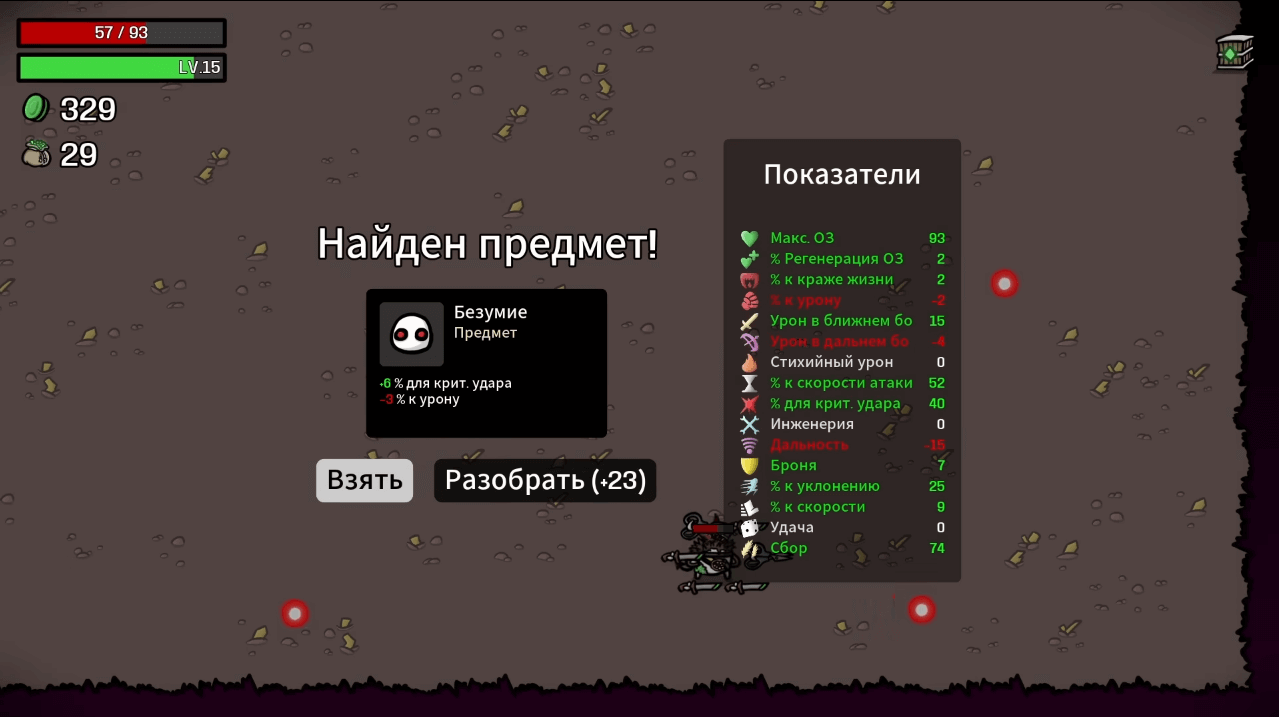
Thus the starting characteristics improve not exponentially, but by leaps and bounds. There is no guarantee that you will get the right items. In such cases, you have to wait for a glimmer of luck or spend a lot of resources on scrolling, hoping for random instead of adjusting to the situation and making as much profit as possible. But there's a nuance: the ability to play Brotato is not measured in unlocked items, but in your knowledge of the mechanics. No one will tell you directly that taking the first level weapon in your hand repeatedly increases the chance of falling out with the same weapon between rounds. This knowledge comes only with experience, you just have to look for non-random coincidences. In Brotato there is a single algorithm of passing, which only skilled players know thoroughly.
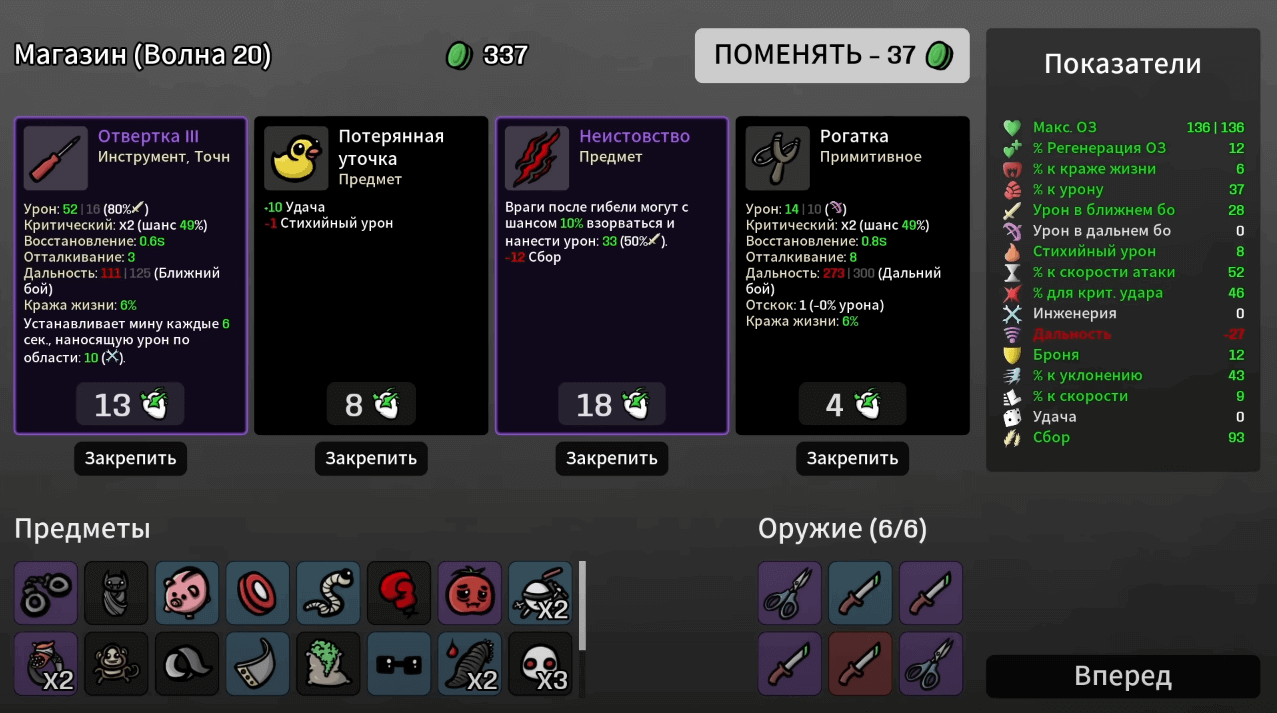
The system with interlevel selection sticks to inexperienced players, but forces them to try new things. Let's say, the player started as a potato shooter, and every now and then he gets stuck with turrets. Accepting the situation, the player first tries to include turrets in the build, pumps them to the maximum, and, oh well, it turns out turrets are not so bad. "What about the Engineer potato? What happens if you sharpen your build exclusively for turrets? - That's the magic and replayability of Brotato, the question of "What if...?"
Is it worth buying Brotato?
If you abandoned Vampire Survivors just because you got tired of swinging, Brotato is 100% your choice. And now it's time to reveal the unpleasant nuances: Brotato is inferior to Vampire Survivors in depth. Whatever weapon or hero you take, there is only one option to go through all twenty waves and defeat the boss, there is no variability at all. Take the wrong weapon - restart, move the wrong way - restart, not fall out the right items - restart. All of this is extremely detrimental to the replayability. As soon as you try all the characters, the game will cease to entice you. Brotato's second problem: The game hasn't been ported to any consoles other than the Nintendo Switch. Even though it's not more than $5, it's still not a great bargain. That's $5 you'll pay for three hours of fun. And it's not sure that you will stay in this game for a long time.
